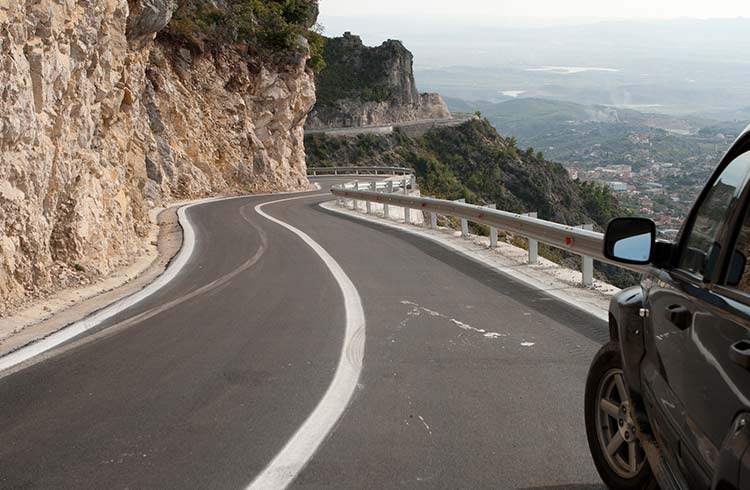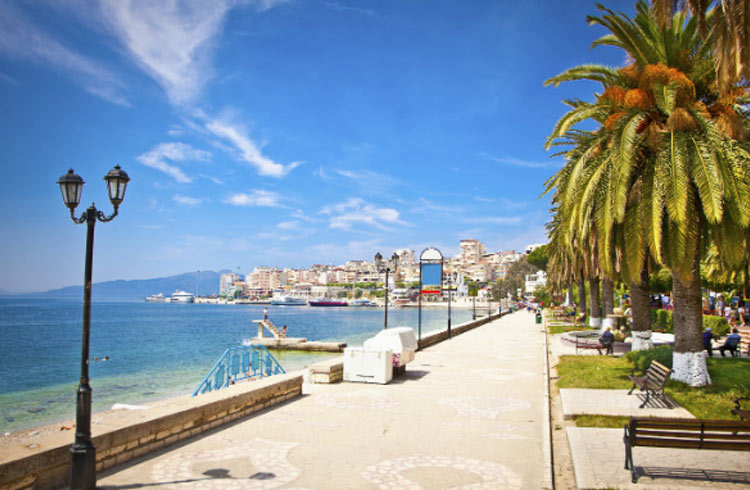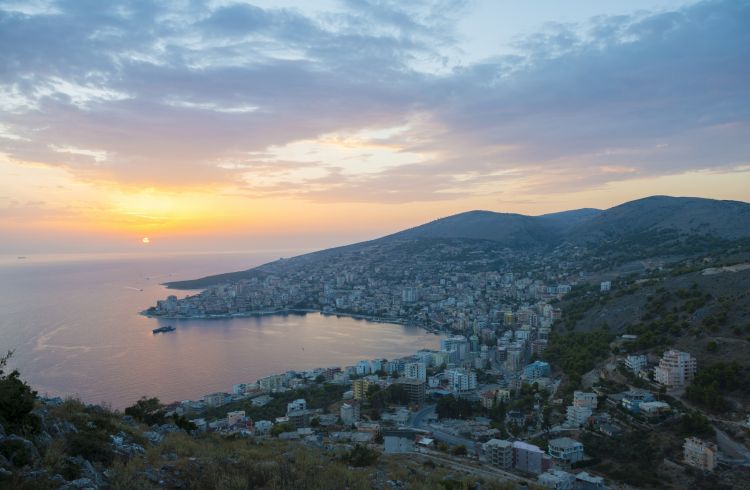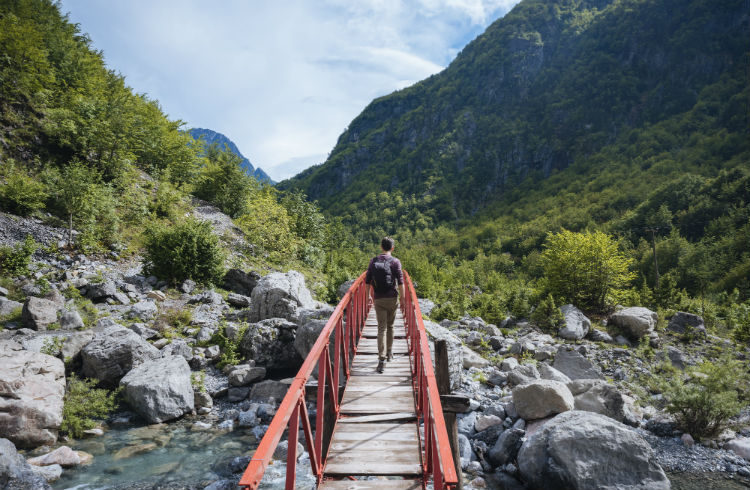Transport in Albania: Tips for Traveling Around Safely
Albania's majestic mountains and stunning coastline are hard to explore on public transport. We take a look at some of the difficulties you might encounter while getting around and how to do it safely.
 Photo © Getty Images/Kandale
Photo © Getty Images/Kandale
While Albania is unspoiled by mass tourism, using public transport to explore Albania can be problematic as the transport infrastructure is challenging, and local drivers aren't known for following the road rules.
Public Transport in Albania
Albania's public transport system is cheap, but you really do get what you pay for, and the system can be unreliable. Timetables are often unreliable, so don't get your hopes up when catching public buses around the country. Once you're onboard, you'll quickly see the maintenance and safety standards are not high on the agenda.
There is a train service which leaves the capital Tirana, servicing the towns of Shkodra, Fier, Durres, Kashar, Elbasan and Vlora. The trains aren't exactly luxury, with travelers reporting worn and torn seats, lack of general cleanliness and outdated facilities. The trains can sometimes be unreliable as economic stress has resulted in the cessation of services previously so have a back up transport plan.
To travel internationally, bus services from Tirana and some coastal towns cross into Greece, Kosovo, Montenegro, and Macedonia.
Furgons
Public buses rarely run to schedule and tend to only shuttle between major destinations which means getting off the beaten path can be difficult for travelers.
Instead, use furgons (privately owned vans) which operate independently of the bus network. They don't have timetables or set fares so you'll have to negotiate with the driver. Always check the condition of the van before hiring it, as government regulation of transport is lax. You don't have to be a mechanic to know a bus is unroadworthy, just go with your gut instinct. If it's rusty and leaking oil, pick one that isn't.
Road Safety
It's possible to hire a car in Albania but bear in mind that many of Albania's roads are in poor condition, but as tourism increases each year, road conditions are improving. Be careful when driving in winter (December to February), when the roads through the mountains in northern Albania are covered with snow and ice. To drive in Albania, you will need an international driver's permit and a valid license.
Roads in remote regions of Albania can change from sealed to gravel, so a 4WD vehicle is the best way to go. Check with locals or your accommodation to find out which is the best route if you've hired a 2WD.
During Orthodox Easter (late April), it's common for locals to travel to and from Greece. Take the incredibly scenic road trip from Vlora to Saranda, descending from the mountains to the coast, opening up to the Albanian Riviera.

Driving on Albanian highways will be daunting if you aren't used to organized chaos. Locals drive on the right-hand side of the road, and speed limits are sign-posted in kilometers: 50km/h (31mph) in urban areas and 90km/h (56mph) in rural locations. Albania has one of the highest road fatality rates in Europe, so driving there isn't for the inexperienced.
Occasionally, police might take interest in drivers with overseas registration plates, mistaking them for cash cows – so stick to the road rules unless you want to pay on-the-spot fines. Always carry your license, international driving permit and registration or rental vehicle papers. It's also important to have your headlights on, or the local police will pull you over and give you a ticket. Some highways and roads are also shared with locals who are moving livestock, and occasionally cattle may wander onto the road.
Drink driving is strictly forbidden in Albania, and the police aren't fond of those who break the law. It's also an offense to use a cell phone while driving, so keep your hands off it, or pull over if you need to read or send a message.
Avoid driving at night outside major cities, as rural roads have poor lighting making hazards, such as potholes, cattle, or large rocks, hard to spot ahead of time. Also, be prepared for traffic lights to be out of order in rural Albania.
Flash floods can occur at any time of the year, opening up deep and wide car-crushing potholes, especially in remote areas.
Albania doesn't have a national vehicle recovery system, so make sure you're self-sufficient and have appropriate equipment including a spare tire, a jack, fan belts, water and food.
If you are involved in an accident, you are obliged to wait for the police to attend. Minor traffic disputes in Albania can sometimes get out of hand quick and occasionally, some drivers in Albania are armed. Stay inside your vehicle if possible, and don't get into any arguments about who was at fault.
Landmines
While both Albania and Kosovo have been taking significant steps towards demining the border region, travelers should take care when traveling around and visiting any towns near the Kosovo border due to unexploded landmines and ordnance left over from the 1999 conflict. Always obey the warning signs and any other landmine information plus stick to the designated hiking paths.
Related articles
Simple and flexible travel insurance
You can buy at home or while traveling, and claim online from anywhere in the world. With 150+ adventure activities covered and 24/7 emergency assistance.
Get a quote

No Comments